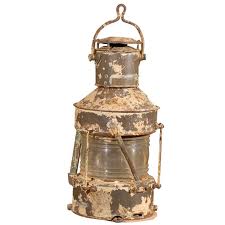The Lantern Never Lies
On the odyssey of life we need some way of knowing where we are, and whether we’re headed the right direction.
In English, to be “oriented” is to know where east is. Historically, church buildings are situated so that the altar is on the east wall, and almost always a window opens to receive the light of the rising sun.
Muslims orient themselves differently. In every mosque there is a little niche in the wall which points toward Mecca. It’s called a qibla. You also find the qibla in hotel rooms, on your cell phone, even on the video screen on airliners—so that you’ll know where to face as you kneel, five times a day, for prayer.
Knowing where you are, knowing what direction you’re going is terribly important.
That’s because it is so easy to get lost, so easy to get turned around—to think you’re going the right way when you’re not.
In Lent we stop, get quiet for a moment, get our bearings. Where am I? What is the direction of my life? Am I oriented?
In Moby Dick there’s a description of a ship’s lantern that hung in the captain’s quarters. No matter which way the ship pitched and yawed in the rolling waves, the lantern always hung down exactly perpendicular to a line drawn down through the center of the earth. As Herman Melville commented, “It revealed the false, lying levels of everything around it.”
Life is so often like that pitching ship: things are practically upside down, and yet—without that lantern—there’s no way of knowing how screwed up things really are. It all starts to look normal.
There is no holy lantern that will faultlessly give us the true level. Two things help, however. One is quiet and the other is community.
If you go for a walk today, leave your phone on the kitchen counter, and spend some quiet moments with an intention in your heart to be shown the way, you will start to see that lantern. If you can set aside time on a regular basis to be away from the noisy, pitching and yawing world, you have a much better chance of getting oriented.
While solitude is important, it is good to balance it with community. It helps to be surrounded by others who are seeking continually to be re-oriented toward God and the good. Even better if you can find what the Celtics call a “soul friend,” someone who can listen to your life and tell you what it looks like from a more objective viewpoint. Human beings have an enormous capacity for self-deception, so it is always wise to trust someone else to hold up the lantern to your life.

David, another great philosophical piece! Meditaion and community–St Luke’s provides us with both opportunites, now we just have to do it and we will be better and blessed by both
Perhaps it is from being an only child – I must have quiet time in my life! Of course, I like the idea of Community as well, but only if I have that quiet time! Ginny